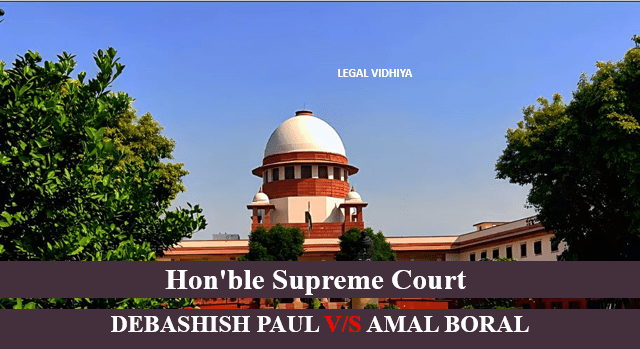
| Citation | Criminal Appeal No.1730 OF 2012 |
| Date of Judgment | 19th October, 2023 |
| Court | Supreme Court of India |
| Case Type | Crpc,IPC |
| Appellant | Indra Kunwar |
| Respondent | The State of Madhya Pradesh |
| Bench | Hrishikesh Roy, Sanjay Karol |
FACTS OF THE CASE:
In the case of IndraKunwar vs. State of Madhya Pradesh, the accused, IndraKunwar, was a woman from a village in Madhya Pradesh, India. She was accused of killing her own newborn child and disposing of the body in a small pond (dabri). The prosecution alleged that IndraKunwar had relations with a co-villager, Baiga Gond, and became pregnant as a result. After giving birth, she was accused of murdering the child and throwing the infant’s body into the pond.
An FIR (First Information Report) was registered on the same day the child’s body was found in the pond, leading to charges against IndraKunwar under Section 302 of the Indian Penal Code (IPC) for committing murder.
The trial court relied on circumstantial evidence, including witness testimonies and the statement of the accused under Section 313 of the Code of Criminal Procedure. Some of the prosecution’s witnesses turned hostile, and the evidence was primarily based on the accused living alone, being pregnant, and the discovery of the infant’s body in the pond. The trial court found IndraKunwar guilty of murder, and the High Court upheld her conviction.
The case raised questions about the right to privacy, the accused’s statement under Section 313 of the CrPC, the burden of proof in cases based on circumstantial evidence, and the sufficiency of evidence to establish guilt beyond a reasonable doubt. Ultimately, the Supreme Court quashed the conviction, as it found that the evidence failed to conclusively establish the guilt of the accused beyond reasonable doubt.
ISSUES:
- Whether the requirement under Section 313 of the Code of Criminal Procedure violates the accused’s right to privacy by compelling them to disclose personal and intimate details against their will?
- Whether the prosecution has established the guilt of the appellant beyond a reasonable doubt through the circumstantial evidence presented in the case?
- Whether the doctor’s testimony, particularly regarding the timing of the child’s death and signs of injuries or abuse, was clear and unambiguous, and whether it could be relied upon to establish the appellant’s guilt in the case?
ARGUMENTS:
The appellant’s argument in the case primarily focused on two main points. First, the appellant asserted her right to privacy, arguing that she should not be compelled to disclose intimate details of her personal life, including her pregnancy and miscarriage, in the absence of concrete evidence linking her to the alleged crime. Second, the appellant challenged the use of circumstantial evidence, contending that the prosecution had failed to establish a clear and direct connection between her and the deceased child found in the pond.
The respondent’s argument, on the other hand, centered on the use of circumstantial evidence, maintaining that the prosecution had presented sufficient evidence to prove the appellant’s guilt beyond a reasonable doubt. They emphasized the importance of examining the circumstances surrounding the case and contended that the appellant’s right to privacy should not shield her from a thorough investigation into the alleged crime.
JUDGMENT:
In the judgment of the case, the Supreme Court carefully considered the arguments presented by both the appellant and the respondent. The Court began by emphasizing the fundamental right to privacy and its significance in safeguarding personal autonomy and dignity. It noted that privacy was essential for human rights and recognized internationally.
The Court then discussed the requirements and principles associated with Section 313 of the Code of Criminal Procedure, which allows the accused to explain incriminating circumstances. It highlighted that this provision should not infringe upon an individual’s right to privacy, and the accused should not be compelled to disclose personal, intimate details unless there is compelling evidence linking them to the alleged crime.
The Court scrutinized the prosecution’s case, emphasizing that the burden of proof in circumstantial evidence cases is quite heavy and should eliminate any possibility of the accused’s innocence. It found that the prosecution had failed to establish a direct and conclusive link between the appellant and the deceased child. The doctor’s testimony lacked clarity on the timing of the child’s death, and the circumstantial evidence was insufficient to prove the guilt of the appellant beyond a reasonable doubt.
As a result, the Supreme Court quashed the conviction of the appellant, Indrakunwar, acquitted her of all charges, and ordered her immediate release if she was in custody. The bail bonds were discharged, and the appellant was set free. The judgment reinforced the importance of respecting the right to privacy and maintaining a high standard of proof in criminal cases based on circumstantial evidence.
REFERENCES:
https://indiankanoon.org/doc/79148490/
https://www.indianemployees.com/judgments/details/indrakunwar-versus-the-state-of-madhya pradesh
This analysis is written by Devyani Semwal an intern under legal vidhiya.




0 Comments